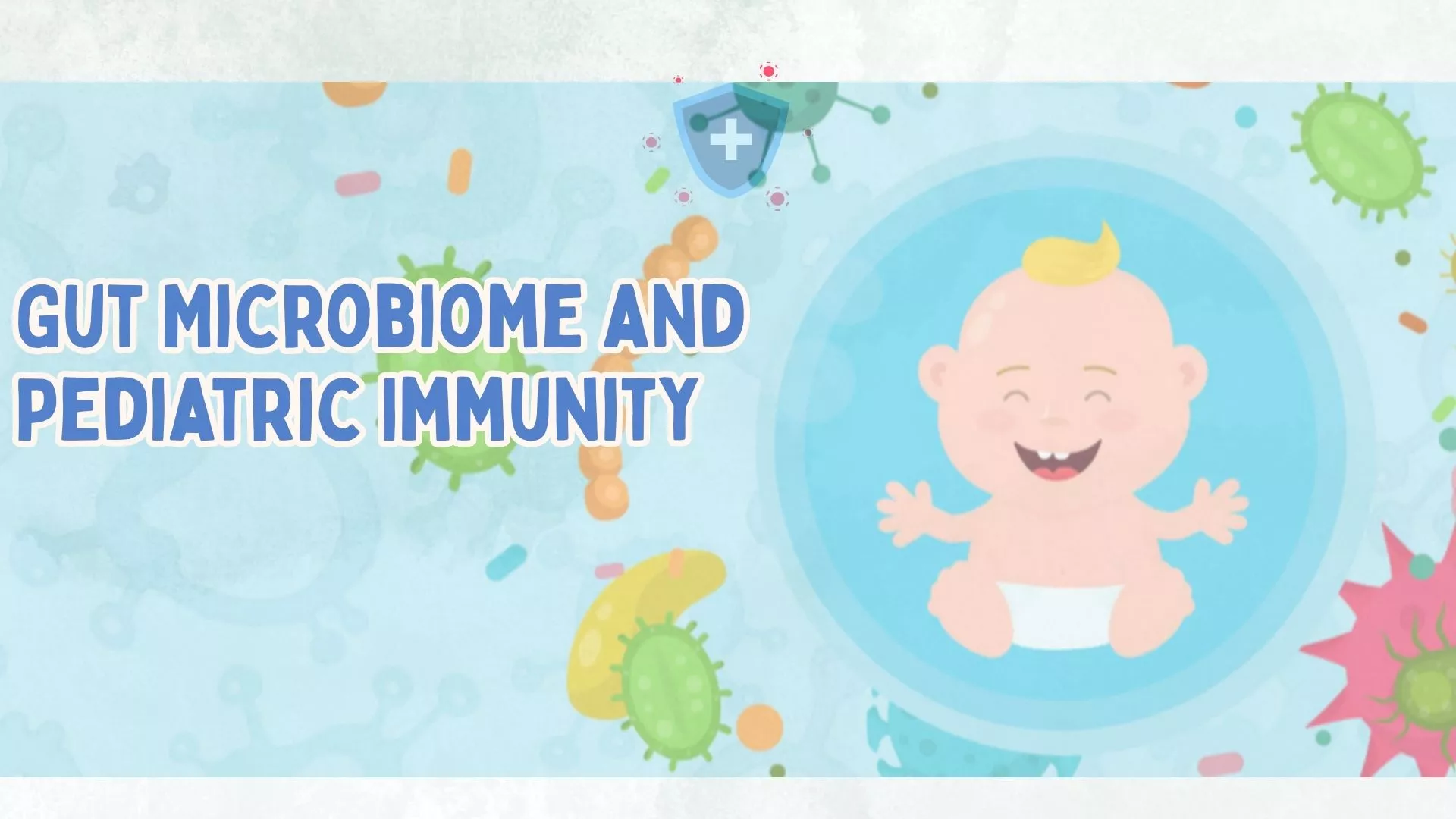What is the Gut Microbiome?
Inside your child’s stomach and intestines live trillions of tiny organisms – mostly bacteria, but also viruses and fungi. Together, they form what doctors call the gut microbiome. Don’t worry – not all bacteria are bad! In fact, most of them are “friendly” bacteria that help your child digest food, absorb nutrients, and stay healthy.
Think of the microbiome as a busy garden: when it has the right mix of plants (bacteria), it flourishes. But if weeds (harmful bacteria) take over, the garden struggles.
Why is the Microbiome Important for Immunity?
A child’s immune system is still learning and growing. The gut microbiome plays the role of a teacher:
- Trains the immune system – It helps the body learn to fight harmful germs without overreacting.
- Protects from infections – Friendly bacteria create a shield on the gut lining, blocking dangerous microbes.
- Reduces allergies – A balanced microbiome prevents the immune system from becoming too sensitive to things like dust, pollen, or certain foods.
- Supports overall growth – Good gut health means better absorption of vitamins and minerals, which strengthens immunity further.
When Does the Microbiome Develop?
The microbiome starts building from birth:
- Normal delivery – Babies pick up bacteria from the birth canal, which helps kickstart their microbiome.
- Breastfeeding – Mother’s milk is rich in special sugars (prebiotics) that feed good bacteria and antibodies that fight infections.
- Early diet – Introducing fruits, vegetables, and whole grains encourages healthy gut bacteria.
- Environment – Playing outdoors, touching soil, and even having pets can expose children to a variety of microbes that enrich their gut.
- By the age of 3, most children’s microbiomes look similar to those of adults, but they continue to evolve with diet and lifestyle.
What Harms the Gut Microbiome?
Several everyday factors can disturb this delicate balance:
- Excessive antibiotics – While life-saving when needed, unnecessary use of antibiotics kills both harmful and helpful bacteria.
- Junk food – Processed snacks, sugary drinks, and fried foods starve the good bacteria.
- Poor sleep and stress – Even in children, irregular sleep or stress can affect gut balance.
- Lack of variety in diet – Eating the same limited foods means fewer types of bacteria thrive.
How Can Parents Support a Healthy Microbiome?
Encourage a Fiber-Rich Diet:
- Fruits, vegetables, whole grains, and legumes are “superfoods” for gut bacteria. For example: Apples, bananas, pears, Carrots, spinach, beans, brown rice and oats.
Include Fermented Foods
- Foods like curd (yogurt), buttermilk, idli, dosa, or kefir contain live bacteria that support the gut.
Limit Junk and Sugary Foods
- An occasional treat is fine, but try not to make chips, sodas, and sweets a daily habit.
Use Antibiotics Wisely
- Only give antibiotics if your doctor recommends them. Never pressure for antibiotics in simple colds or viral fevers.
Encourage Outdoor Play
- Let children get their hands dirty in safe environments. Exposure to natural microbes is part of healthy immune training.
Prioritize Sleep and Routine
- Regular sleep strengthens both the microbiome and the immune system.
Should You Give Probiotic Supplements?
Probiotics (capsules, powders, or drinks containing live bacteria) are widely available. While they can be helpful in certain conditions – like diarrhea after antibiotics – they are not always necessary for every child. Food-based probiotics (like yogurt) are usually enough. Always consult your child’s doctor before starting supplements.
A Note on Allergies and Immunity
Research shows that children with a healthy microbiome are less likely to develop eczema, asthma, or food allergies. The gut also communicates with the brain, meaning good gut health can support emotional well-being and reduce risk of anxiety later in life.
The Take-Home Message for Parents
Your child’s gut is more than just a digestion machine – it’s the headquarters of immunity. By offering a varied diet, limiting unnecessary antibiotics, encouraging outdoor play, and maintaining healthy routines, you can help your child build strong defenses for life.
A happy tummy often means a healthy child





